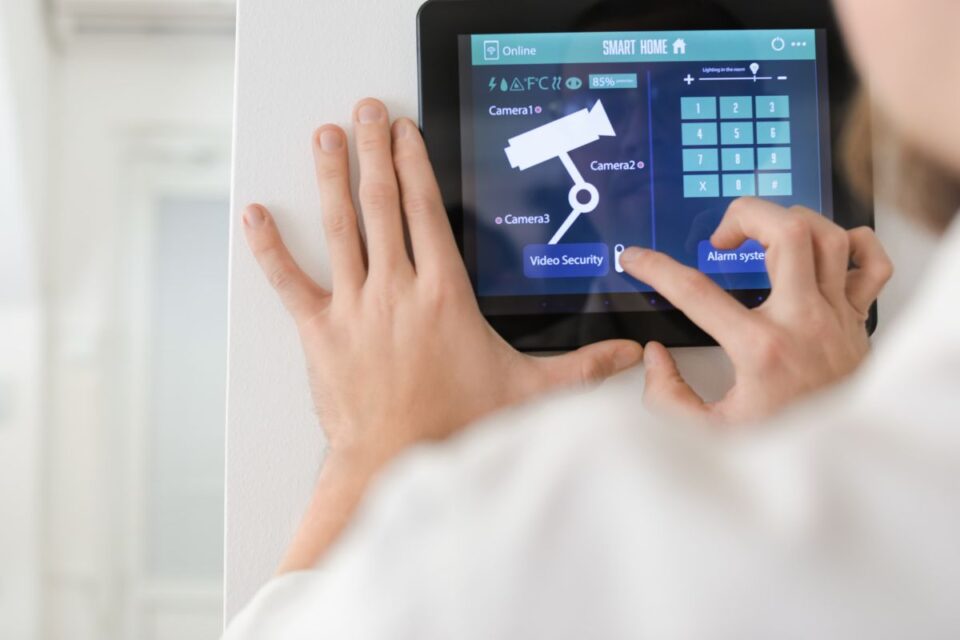Over the years, home security has become a top priority for homeowners worldwide. With the increasing technological advancements, home security systems have significantly evolved, offering a more comprehensive and efficient way of safeguarding homes. One of the latest innovations in this field is the solar security camera, powered by solar energy, making it a cost-effective and eco-friendly solution.
These cameras are just one example of how technology transforms how we secure our homes. From basic alarm systems to smart homes, the evolution of home security systems has come a long way. In this article, we will explore how home security systems have evolved with technology and the impact of these advancements on home security.
Table of Contents
1. Overview of Home Security Systems and the Technological Evolution
Home security systems have come a long way since their inception, with technological advancements driving their evolution. The traditional wired connections and limited sensors of the past have given way to wireless technology, smart home integration, and artificial intelligence.
The advent of wireless technology has enabled the installation of sensors in more locations without the need for complex wiring, allowing for more excellent coverage and improved reliability. Smart home integration has also transformed home security systems, providing homeowners with a single app to control their security and smart devices. Artificial intelligence has further enhanced the efficiency and effectiveness of security systems by reducing false alarms and providing more personalized protection.
Home security systems have become more sophisticated, offering various options for different needs, preferences, and budgets. As technology continues to evolve, home security systems are expected to become even more advanced and personalized. Homeowners can now enjoy more flexible and reliable security systems, providing them with the peace of mind they need to feel safe and secure.
2. Wireless Technology: Advancements in Home Security Systems
Wireless technology has significantly advanced home security systems, providing homeowners with more flexibility and improved reliability. In the past, traditional security systems relied on wired connections, which were often difficult to install and limited the coverage area. However, wireless technology has changed the game, allowing for the easy installation of sensors in various locations without the need for complex wiring.
Wireless security systems offer a few benefits over conventional wired systems. They are easy to install and maintain and less vulnerable to tampering, as they do not have exposed wires. Wireless systems are also more reliable, with no interruptions due to power outages or cut wires.
Another advantage of wireless technology in home security systems is remote access. Homeowners can now remotely monitor and control their security systems using their smartphones or computers. It enables them to keep an eye on their homes even when they are away, providing peace of mind and enhanced security.
3. Integration with Smart Home Devices: How Technology is Making Homes Smarter and Safer
Integrating smart home devices with home security systems has made homes more innovative and safer. With smart locks, cameras, and doorbells, homeowners can remotely monitor and manage their homes from anywhere using their smartphones or computers. Smart locks allow homeowners to control access to their homes, while smart cameras provide real-time surveillance. Smart doorbells allow homeowners to see and speak to visitors, even away from home.
Integrating these devices with home security systems has made it easier for homeowners to manage their security systems from a single app, enhancing convenience and accessibility. As technology advances, smart home devices are expected to become even more sophisticated, providing homeowners with even greater control and security.
4. Innovative Features of Modern Home Security Systems: From AI to Facial Recognition
Modern home security systems are equipped with innovative features that make them more efficient and effective in protecting homes and properties. Artificial intelligence is one of the most notable features, which enables security systems to learn and adapt to the homeowner’s behavior, reducing false alarms and providing more personalized protection. Facial recognition technology is also becoming more prevalent, allowing security systems to recognize authorized individuals and alert homeowners of unauthorized access.
Other innovative features of modern home security systems include voice recognition, which allows homeowners to control their security systems with voice commands, and geofencing, which enables the system to arm or disarm based on the homeowner’s location automatically. These features enhance convenience and accessibility while improving the home’s overall security.
As technology continues to evolve, modern home security systems are expected to become even more sophisticated, offering homeowners even more innovative features to keep their homes and properties safe and secure.
5. Security System Trends: Predictions for the Future of Home Security Technology
The future of home security technology is expected to focus on innovative features that improve homes’ overall safety and security. One of the most notable trends is the increasing use of smart home devices, enabling homeowners to control their security systems remotely and in real time.
Another trend is artificial intelligence and machine learning, which will allow security systems to learn and adapt to homeowners’ behavior, making them more efficient and effective in detecting potential threats. Facial recognition technology is also expected to play a more significant role in security systems, enabling homeowners to recognize authorized individuals and receive alerts for unauthorized access.
Conclusion
In conclusion, technology has significantly impacted the evolution of home security systems. Technology has transformed how we protect our homes, from traditional alarms and locks to sophisticated smart home systems. With advancements such as AI, machine learning, and wireless connectivity, homeowners have more control and customization over their security systems than ever before. As we look to the future, it’s clear that technology will continue to play a vital role in home security, providing us with even more innovative and effective ways to keep our homes safe and secure.

